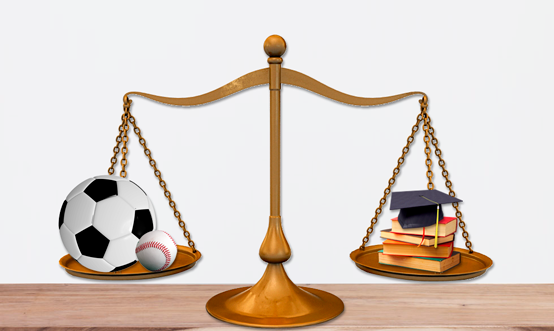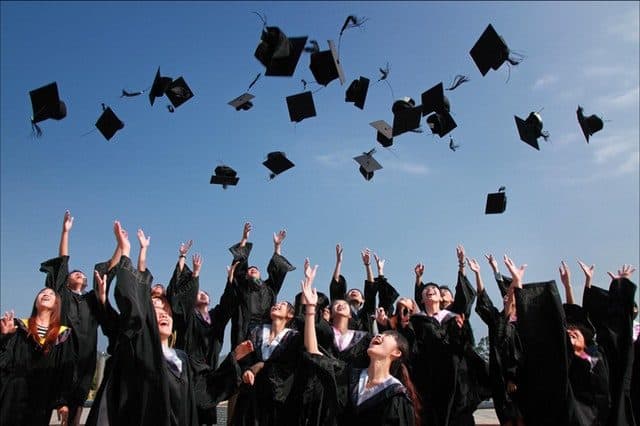
The Role of Athletics in College: Balancing Academics and Sports
In today’s educational landscape, athletics play a crucial role in college life. Student-athletes often face the challenge of balancing rigorous academic requirements with demanding sports schedules. This balancing act can lead to a rich and rewarding college experience, fostering both personal and professional growth. This article delves into the importance of athletics in college, the benefits and challenges faced by student-athletes, and strategies to effectively balance academics and sports.
The Importance of Athletics in College
Athletics are integral to college life for several reasons. They contribute to student engagement, foster school spirit, and provide valuable life skills.
Enhancing Student Engagement
Participation in college sports enhances student engagement. Athletes often demonstrate higher levels of commitment to their education, motivated by eligibility requirements that mandate satisfactory academic performance. This creates a positive feedback loop where athletic involvement promotes academic success, and vice versa.
Building School Spirit
Athletics foster a sense of community and school spirit. College sporting events bring together students, faculty, alumni, and fans, creating a unified identity and a supportive environment. This sense of belonging can enhance the overall college experience and lead to lifelong connections.
Developing Life Skills
Engaging in athletics helps students develop essential life skills such as teamwork, leadership, time management, and resilience. These skills are invaluable in both personal and professional contexts, preparing student-athletes for successful careers post-graduation.
Benefits of Being a Student-Athlete
Being a student-athlete offers numerous benefits, from physical health to career opportunities.
Physical and Mental Health Benefits
Regular physical activity associated with sports participation leads to better physical health. It helps in maintaining a healthy weight, reducing the risk of chronic diseases, and improving cardiovascular health. Additionally, sports participation is linked to improved mental health, as physical activity can reduce symptoms of depression and anxiety and enhance overall well-being.
Scholarship Opportunities
Many colleges offer scholarships to talented athletes, providing financial support that can make higher education more accessible. These scholarships can cover tuition, room and board, and other expenses, significantly reducing the financial burden on students and their families.
Career Opportunities
The discipline, skills, and network developed through athletics can open doors to various career opportunities. Many employers value the traits exhibited by student-athletes, such as discipline, dedication, and the ability to work under pressure. Furthermore, the alumni network associated with college sports can provide valuable connections in the job market.
Challenges Faced by Student-Athletes
While the benefits are substantial, student-athletes also face unique challenges.
Time Management
Balancing academics and athletics requires exceptional time management skills. Student-athletes often have rigorous training schedules, travel commitments for competitions, and academic deadlines. This can lead to stress and burnout if not managed properly.
Academic Pressure
Maintaining academic eligibility while meeting the demands of their sport can be challenging. Student-athletes must prioritize their studies despite the physical and mental exhaustion from training and competition. This pressure can sometimes lead to a compromised academic performance if not handled effectively.
Injury Risks
Participation in sports carries the risk of injuries, which can affect both athletic performance and academic progress. Severe injuries may require time off from both sports and studies, creating additional challenges in balancing the two.
Strategies for Balancing Academics and Sports
Effective strategies can help student-athletes achieve a balance between their academic and athletic commitments.
Time Management Skills
Developing strong time management skills is crucial. Student-athletes should create a detailed schedule that includes classes, study time, training sessions, and rest. Prioritizing tasks and setting realistic goals can help in managing time effectively.
Academic Support Services
Many colleges offer academic support services specifically for student-athletes. These services can include tutoring, academic advising, and study groups. Utilizing these resources can help student-athletes stay on top of their coursework and manage their academic responsibilities effectively.
Communication with Coaches and Professors
Open communication with coaches and professors is essential. Coaches should be aware of academic commitments, and professors should understand the demands of athletic schedules. This mutual understanding can lead to a supportive environment where student-athletes can thrive in both areas.
Self-Care and Wellness
Maintaining physical and mental wellness is critical for student-athletes. Adequate sleep, a balanced diet, and stress management techniques are essential components of self-care. Taking time for relaxation and hobbies can also help in maintaining a healthy balance.
Setting Realistic Goals
Setting realistic academic and athletic goals can prevent overcommitment and burnout. Student-athletes should aim for achievable targets in both areas and adjust their plans as needed to ensure a sustainable balance.
The Role of Institutions in Supporting Student-Athletes
Colleges and universities play a significant role in supporting student-athletes.
Providing Resources and Support
Institutions should provide comprehensive resources and support for student-athletes. This can include academic tutoring, mental health services, nutritional guidance, and career counseling. Such resources can help student-athletes navigate the challenges they face and maximize their potential.
Fostering a Balanced Environment
Creating an environment that values both academics and athletics is crucial. Colleges should promote a culture where academic success and athletic achievement are seen as complementary rather than competing priorities. This can encourage student-athletes to excel in both areas without feeling overwhelmed.
Encouraging Lifelong Learning
Colleges should encourage student-athletes to view education as a lifelong journey. Emphasizing the importance of academic achievement and personal development can help student-athletes prepare for life beyond college, ensuring they are well-rounded individuals ready to contribute to society.
Conclusion
The role of athletics in college is multifaceted, offering numerous benefits while presenting distinct challenges. By fostering a supportive environment and providing the necessary resources, colleges can help student-athletes achieve a balance between academics and sports. This balance not only enriches their college experience but also prepares them for future success in various aspects of life.

Hi, I am John Smit a Captain in Fire Department City of Newyork with over years of experience in the field of Firefighting and HSE. My passion for fire safety started when I was a young boy and witnessed a neighbor’s house go up in flames along with precious lives. Since then, I had dedicated my life to ensuring the safety of buildings, properties, and individuals in case of a fire and medical emergencies.



